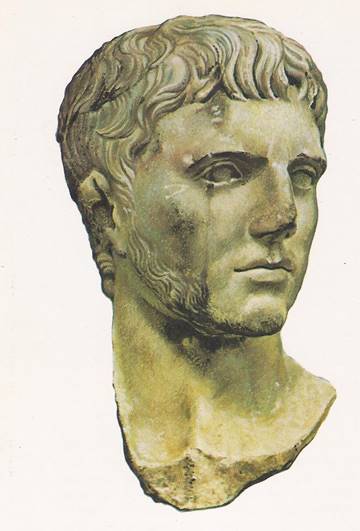Today we speak the words, “I am a World citizen,” with pride. To the people of the ancient world the statement, “I am a Roman citizen,” was a badge of high honour. Beginning as a small city state in Italy, Rome grew into a vigorous republic and finally into an empire so mighty that it included the whole of the Mediterranean world. Even after Rome’s grandeur had waned, its influence lived on among later peoples. Rome’s history is a reminder that the destiny of a nation rests more on the wisdom of its leaders and the character of its people …
Read More »Tag Archives: Cicero
Florence, First City of the Renaissance 1200-1480
March 25, 1436, was the Feast of the Annunciation and the city of Florence was decked out for a celebration. Banners flew everywhere, ribbons and garlands of flowers decorated the houses and draperies of cloth-of-gold were looped across the shop-fronts. The city bustled with excitement, for on this Annunciation Day the pope was to dedicate the Duomo, the wonderful new Cathedral of Santa Maria del Fiore, then the largest church in the world. At dawn, the people began to fill the streets. They crowded around the high wooden walk that led to the cathedral from the monastery where the pope …
Read More »Great Church Fathers A.D. 340-430
IT WAS about the middle of Lent in Antioch, reported Jerome, when “a deep-seated fever fell upon my weakened body, and . . . it so wasted my unhappy frame that scarcely anything was left of me but skin and bone. Meanwhile, preparations for my funeral went on; my body grew gradually colder and the warmth of life lingered only in my throbbing breast. Suddenly I was caught up in the spirit and dragged before the judgment-seat . . .” Then follows a long account of his dream in which Christ scolded him for his devotion to the works of …
Read More »The City Where Money Ruled A.D. 54 – A.D. 192
“IT is impossible to find peace and quiet in this city!” Seneca, in Nero’s Rome for a visit, was not enjoying his stay and he wrote about it in an angry letter to one of his friends in the country. “The room I have rented is right over‚ a public bath and I might as well have taken a bed in the Tower of Babel. When the athletic bathers do their exercises, I hear every grunt as they strain to lift the dumbbells and the awful wheezes as they drop them again. In the ball court, a loud-mouthed coach calls …
Read More »The Second Triumvirate 43 B. C. – 30 B. C.
AS THE news of Caesar’s death spread through Rome, sorrow, anger and fear took hold of the city. On March 17, two days after the murder, the Senate met again. Cassius, Brutus and the other assassins took their usual places. There was no doubt that most of their fellow senators felt that they had done the right thing in ridding Rome of a tyrant, but Caesar’ s veterans were still in the city, taking their orders now from Marcus Aemilius Lepidus, who had been his Master of the Horse, the commander of the cavalry. Mark Antony was still consul, he …
Read More »



